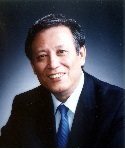Were China to publish a weekly news magazine and carry a “Person of the Year” cover story, a large number of Chinese men and women, I believe, would cast their vote for Bo Xilai. For more than a year now, the unusual experience of this handsome man and his pretty wife, their stories, both true and false, and gossips or rumors about them have become, for many people, appealing dinner table topics. What is more is that the Bo Xilai case happened at an important juncture of the political, government and military power transfer in China. This has added political connotation and mysteries to this public figure at this crucial moment. Some even say that the Bo Xilai case has had all the essential elements for a commercial movie with good box-office returns.
Recently, Bo Xilai has been formerly indicted, which will help dispel the mystery surrounding the case and offer people a window into the political will and governance theory of the Chinese leadership. According to the Chinese law, Bo Xilai has been charged with three offences; namely, embezzling funds, accepting bribes and abusing power. But there is seemingly a big gap over the amount of embezzled funds or bribes that he has been charged with versus what people have speculated. Those who are familiar with the Chinese law believe that what has been released about the Bo Xilai case is a strong signal to show that it is time to conclude the drama. People guess that both Bo Xilai and his wife would be sentenced to death, but would be reprieved.
Many rational people in China have seen some social progress from the way Bo Xilai has been prosecuted, a legal proceeding that is crucial to the fate of this political figure. In fact, the social progress in improving the rule of law that the Chinese political party in power has claimed to have achieved has brought good luck to Bo Xilai, and even more so to China.
Many Chinese of the old generation would never forget that in the summer of 1966, Mr. Liu Shaoqi, then President of China, had to shout out, holding the Chinese Constitution in hand, to the “Red Guards” who surrounded him and criticized him in public: “I am a Chinese citizen and the Chinese President protected by the Chinese Constitution.” Unfortunately, China was then a paradise for lawless people. Just imagine if the Bo Xilai case was handled 47 years ago – what was lying there for him could not be anything but death without prosecution. His father Bo Yibo, who served as Vice Premier of China, encountered a fate worse than death. In contrast, Bo Xilai is lucky, as he lives in today’s China under the rule of law.
Bo Xilai is also lucky because he has not been dragged into the horrible whirling vortex of politics and damned to perdition. A review of the CPC history tells us that the most heinous crimes were not embezzlement and corruption, but rather taking “an erroneous political line” or “anti-Party line”. The most despicable crime that the enemy could be charged with in medieval Europe was blasphemy against God. In the same token, “an erroneous political line” was used as a catch-all soft weapon or unescapable shackles against senior CPC officials. The arbitrary imposition of such charges gave perpetrators unlimited opportunities to abuse power and a huge space for persecuting or tormenting others and for committing other evildoings.
When the Bo Xilai case was first exposed, there was a lot of speculation about the political background of this case. Some of those who once praised Bo for his special achievements when he was in charge of Chongqing were worried about their own fate. Would they too be condemned into being his accomplices and subsequently purged or dismissed? Now it is clear that such worries are unnecessary. Unlike leaders of the Mao Zedong’s era, leaders of the new generation will not judge people on their relations with a particular person, nor will they replace legal yardsticks with political needs. They have done away with the feudal palace politics in which every new sovereign brought in his/her own courtiers and in which policies and measures that a man in power introduced would discontinue immediately after he died. Bo Xilai and his co-defendants will be tried strictly in accordance with law. At the same time, their merits and offences will be evaluated separately and fairly. No lenient consideration will be given to one’s offences only in view of one’s past achievements. No merits can offset faults.
In this way, the new leadership is able to steer away from the possible polemics on how to pursue development within the Party, from the overseas speculations about whether the CPC central leadership would recognize the so-called “Chongqing development model” and also from making an official evaluation or judgment on Bo Xilai’s work in Chongqing (including the campaign for singing revolutionary “red” songs and against China’s gangsters in Chongqing).
Indeed, it is very difficult to totally separate the crimes and political achievements of a political figure. The history of handling legal cases involving political figures, from arresting and prosecution of the “Gang of Four” with Jiang Qing at the core; the prosecution of Chen Xitong, former Member of the Political Bureau of the Chinese Communist Party and former Mayor of Beijing; and that of Chen Liangyu, former Secretary of the Shanghai Municipal Committee of the Chinese Communist Party; to the current prosecution of Bo Xilai, clearly shows that the judicial system in China is moving out of political intervention and toward greater independence, more considerations to the person and greater fairness.
Qin Xiaoying is a Research Scholar with the China Foundation for International and Strategic Studies.

